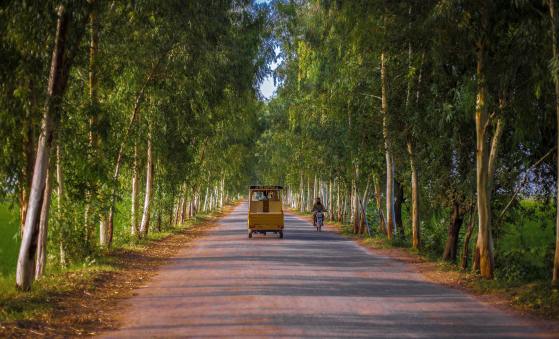
Christian leaders in Arunachal Pradesh state are voicing strong opposition to a renewed government effort to finalise rules for a decades-old law that restricts religious conversion, saying it poses a direct threat to constitutional freedom of religion.
The state government has set up a new committee to examine the draft rules of the Arunachal Pradesh Freedom of Religion Act 1978, a law passed nearly 50 years ago but never implemented. Retired High Court judge Brojendra Prasad Katakey was appointed last week to chair the committee, replacing State Home Minister Mama Natung, who previously led the process.
The panel includes two ministers, senior civil servants, and representatives from six organisations. Among them are the Arunachal Christian Forum (ACF), which brings together various Christian denominations, and the state chapter of the Vishwa Hindu Parishad, a hardline Hindu nationalist group.
The committee was formed following a directive from the state’s High Court last September, which instructed the government to bring the long-pending law into alignment with the Constitution and finalise the rules. The committee has been asked to submit its report as soon as possible. The directive came in response to a petition filed by lawyer Tambo Tamin, a former official of the Indigenous Faith and Cultural Society of Arunachal Pradesh.
Christian leaders, however, say key provisions of the law violate basic freedoms. ACF president James Techi Tara pointed out that the bill requires anyone seeking to convert to another religion to secure prior approval from the deputy commissioner. “Why should one go to the deputy commissioners? Religion is a matter of personal choice,” he said.
Former ACF president Tarh Miri, who sits on the review committee, said the group has made its position clear. “The ACF has repeatedly opposed and will oppose the bill as it targets and discriminates against Christians,” he told UCA News on 19 October. “It curtails religious rights.”
Miri added that the law, if activated, would particularly harm indigenous communities, and he accused the government of yielding to pressure from right-wing Hindu groups that frequently accuse Christians of converting tribal people for political reasons. He said the legislation is “riddled with ambiguities” and could be used to restrict the religious freedoms guaranteed under Article 25 of the Constitution.
Although the law was passed in 1978, successive governments in Arunachal Pradesh chose not to implement it. The act prescribes prison terms and fines for conversions said to be carried out “by use of force or inducement or by fraudulent means”. Media reports suggest the law was originally drafted to shield indigenous faiths from perceived dominance by both Christianity and Hinduism.
Some indigenous faith groups have also endorsed the push. “This act is for people of all faiths in Arunachal. It will serve all. This is not at all unconstitutional,” indigenous faith leader Kamjai Taism told journalists.
Arunachal Pradesh, which borders China, Myanmar and Bhutan, recorded a population of about 1.3 million in the 2011 census. Roughly 30 percent identify as Christian, 29 percent as Hindu, and about 26 percent follow indigenous belief systems.
Adapted from UCA News.




